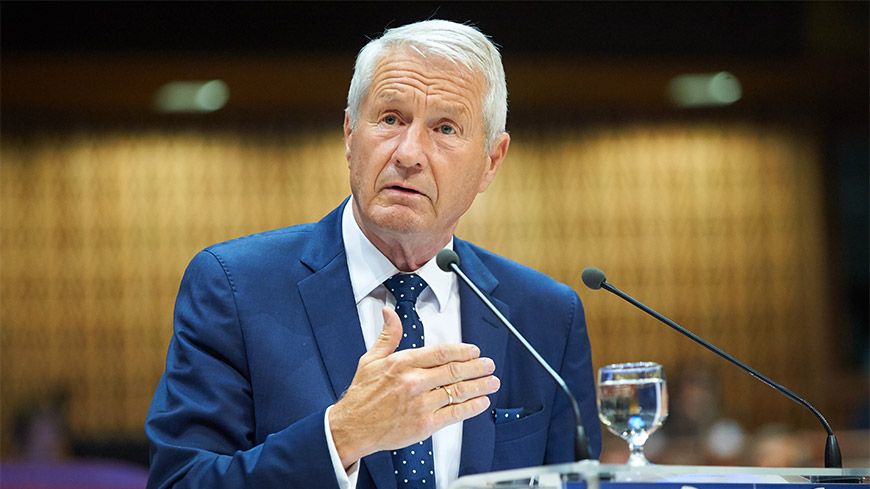Council of Europe Secretary General Thorbjørn Jagland, in reply to questions, has told PACE members that he is concerned by the current situation regarding fundamental rights in Turkey.
Following the decision to charge Taner Kiliç, Chair of Amnesty International Turkey, with “membership of a terrorist organisation”, Mr Jagland said that he immediately called the Turkish Minister of Justice to remind him that the Council of Europe always keeps a particularly close eye on the rights and treatment of human rights defenders.
Mr Jagland underlined the fact that by setting up a commission of inquiry to provide judicial review, time had been saved for all those who have been dismissed after the attempted coup. He insisted that it was important now that justice starts to work in Turkey, and that the many instruments that the Council has available needed to be applied. He said he hoped the report on the Committee for the Prevention of Torture’s visit from 2016, would be made public soon, and insisted that the Organisation must continue to work with the Turkish authorities on judicial reforms, where much had already been achieved.
When asked whether reintroduction of the death penalty in Turkey would be a red line for the Council of Europe, Mr Jagland asserted that, along with derogations from other rights such as the right to life and the prohibition of torture, the death penalty could have no place in the ECHR system.
The Secretary General highlighted the contribution that the Council of Europe was making in the field of education to address anti-muslim sentiment, reduce hate speech and teach what it means to live together in a European democratic family.
In response to a question on Moldova, Mr Jagland welcomed arrests following disappearance of large sums from banks, as well as the ongoing judicial reforms. He said that political parties should look carefully at Venice Commission advice on the new electoral law, in order to build broad support and hold elections that all could recognise as fair.
Asked about Russia’s financial contribution to the Organisation following doubts raised in the media, the Secretary General reported that he had received no indication from the Russian authorities of any intention not to pay their full contribution by the end of the month, as foreseen.
During the exchange, Mr Jagland insisted that he would do all he could to ensure cooperation with the independent external investigation body on allegations of corruption within the Parliamentary Assembly by all concerned.
Mr Jagland told parliamentarians he was confident that the European Union would accede to the ECHR, despite being stalled by a decision of the European Court of Justice in December 2015. He said there were indications that things were beginning to move on the EU side.


